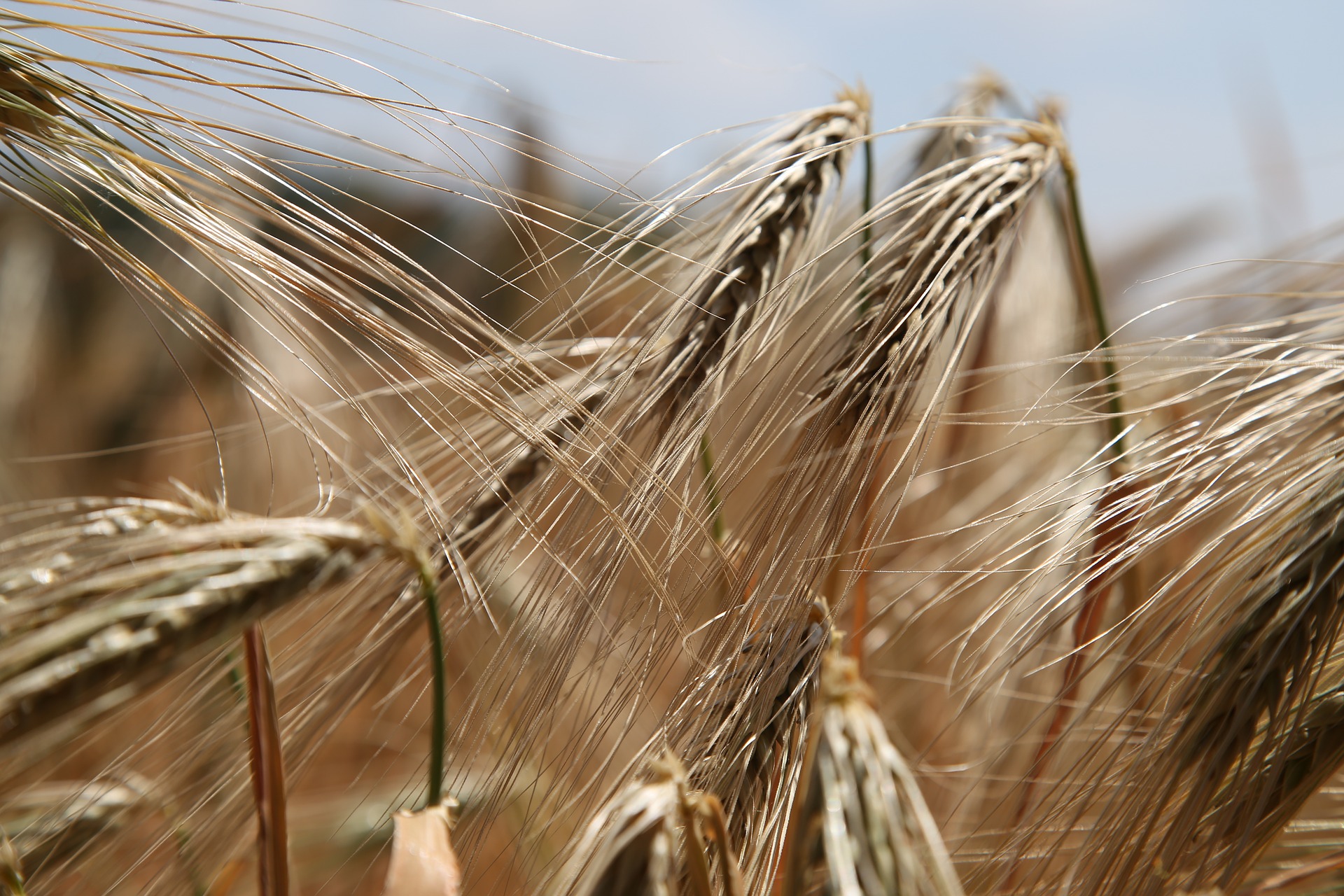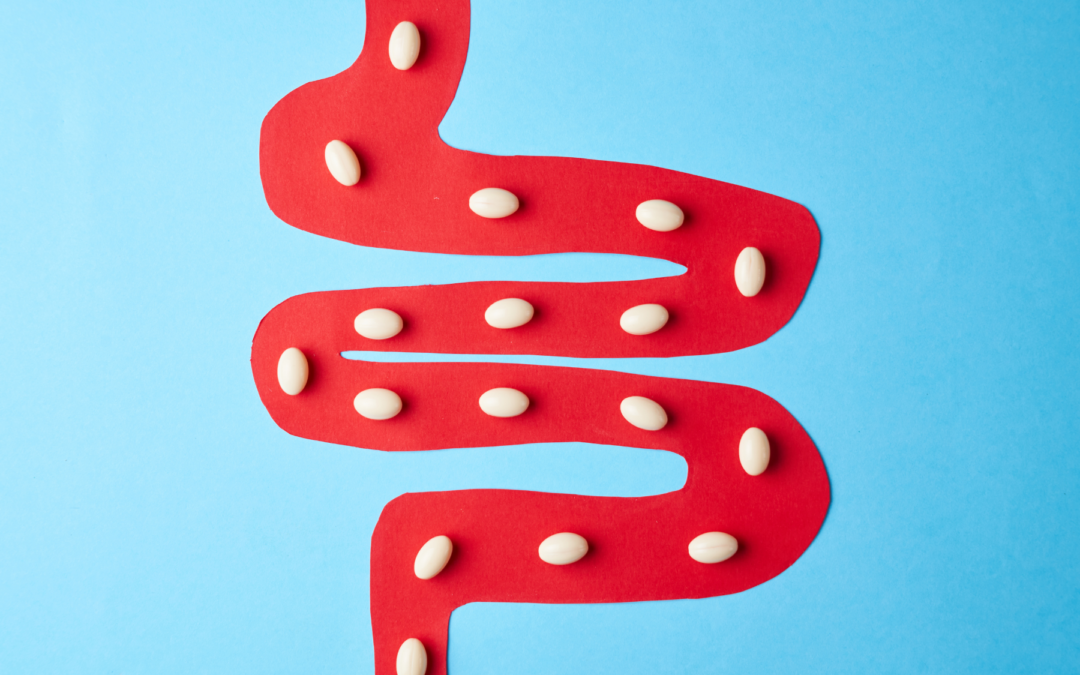By now, we’ve all heard about gluten. But what is it? Does it cause Celiac disease? Could there be anything else linked to the wheat that is causing an increase in gluten intolerance? In this post, we will address all of these questions and more. By the way, we do our best to sum up the research in the simplest way possible, but this is still a pretty complex read.
What is gluten?
Gluten is one of the proteins found in wheat, barley, and rye. These products are often used in many other food products, so there are many food items that have at least some gluten. (For example, many seasoning mixes, frozen meatballs, soy sauce, and millions of other food products have some gluten.)
What is Celiac disease?
Celiac disease is an autoimmune disorder in which people have a severe intolerance to gluten. Celiac disease is a growing problem worldwide (1). It is estimated that 5% of the population in North America and Europe now suffers from Celiac disease and/or a gluten intolerance (1). Some of the classic symptoms of celiac disease include nausea, diarrhea, skin rashes, macrocytic anemia, and depression (1).
What causes Celiac disease and gluten intolerance?
Celiac disease is heavily influenced by genetics and can be triggered by eating gluten. But many wonder, is gluten the real culprit for celiac disease and other gut issues? Why is the prevalence of celiac disease increasing so much?
It has been proposed that glyphosate, the active ingredient in the common herbicide Roundup, is to blame for the increase in gluten intolerance. One study showed that fish exposed to glyphosate develop digestive problems similar to those of celiac disease. Although our digestive symptoms are different from those of fish, this study begs the question: Could glyphosate lead to gut issues in humans too?
The digestive problems in Celiac disease (and gluten intolerance) can be partially due to imbalances in the gut bacteria. Glyphosate has a negative effect on gut bacteria (1). Other problems in celiac disease can be due to impairment in the cytochrome P450 enzyme. Cytochrome P450 is an enzyme that detoxifies the body from environmental toxins, activates vitamin D, breaks down vitamin A, and helps maintain bile acid and sulfate supplies to the gut and so much more (1).
Is glyphosate a real concern?
More glyphosate is used in the United States and Canada than in any other country. The US uses over 36 million kilograms of glyphosate per year and Canada buys over 25 million kilograms per year. The Canadian Food Inspection Agency (CFIA) found that about 30% of the food products tested had glyphosate residues (2). Of the 3,188 food samples they tested, 869 (27%) were grain products. They also found that 36.6% of the grain-based products tested had glyphosate residues and 3.9% contained residues over the max limit (2).
Why were so many products contaminated? Well, crop desiccation became a popular farming practice back in the 1990s. Desiccation is the process of applying a chemical (glyphosate) to a plant before harvesting to kill the weeds and help dry out the plant for harvest. It helps to correct for uneven growth in wheat and is commonly used in areas with short growing seasons. Wheat and other grains are prone to uneven ripening and are often desiccated (sprayed) 7 days prior to harvest. (It is illegal to spray wheat with glyphosate less than 7 days prior to harvest.)
Where and when is glyphosate used?
The Wheat Foundation has claimed that wheat desiccation with glyphosate only occurs in 3% of wheat acres in the U.S. (3). It may be true that only 3% of wheat growers are spraying glyphosate on their wheat 7 days prior to harvest, but what percentage are using it throughout other times during the growing season? The Wheat Foundation also noted that glyphosate is applied to 33% of wheat acres in the U.S. when crops are not growing to preserve moisture in the soil and prevent weeds from growing (3). Hence, glyphosate is often sprayed on the soil when plants are not growing and does often accumulates in streams and lakes.
One study showed that glyphosate levels have increased a lot in humans between 1993 and 2016 (4). This study measured urine samples of glyphosate and its metabolite (breakdown product) in 100 participants during the years 1993-1996 followed by measurements again in 2014-2016. The average glyphosate level increased from 0.024 μg/L in 1993-1996 to 0.314 μg/L in 2014-2016 and went above the level of detection (0.449 μg/L) in 2014-2016 in 70 of the 100 participants (4). The average glyphosate metabolite levels increased from 0.008 μg/L in 1993-1996 to 0.285 μg/L in 2014-2016, and reached the level of detection (0.401 μg/L) in 2014-2016 in 71 of the participants.
Now, those numbers might sound confusing. Here’s the simple translation: people’s glyphosate levels increased over 1000% between 1993 and 2016, and many people even had levels above the upper limit of detection!
Should I be worried about glyphosate?
As mentioned earlier, glyphosate can be directly toxic to cytochrome P450. It is also possible that glyphosate could be to blame for dysbiosis and harm to the gut microbiome (5). Dysbiosis is an imbalance in gut bacteria. Essentially, it means there is an overabundance of bad bacteria in the gut. Dysbiosis has been linked with increased inflammation (6), obesity (7), and anxiety (8). (All of the symptoms that people tend to lose when they stop eating wheat.)
The reason glyphosate is used as an herbicide is that it interferes with the shikimate pathway, which is needed by bacteria for survival. Some harmful bacteria have found a way to develop mutations that allow them to survive the effects of glyphosate. One study showed that glyphosate residues on food could cause dysbiosis since the pathogenic/bad bacteria are more resistant to glyphosate compared to the commensal/good gut bacteria (5).
Over the last few years, we’ve seen more research on the risks of glyphosate, especially from long-term exposure. This topic has divided researchers into one of the most heated debates in recent years. The International Agency for Research on Cancer (IARC) reclassified glyphosate as a probable carcinogen, meaning that it probably causes cancer (6). Some studies suggest an association between glyphosate and developing non-Hodgkin’s lymphoma (6). Others link glyphosate to developing acute myeloid leukemia and multiple myeloma, but these studies have not proven that glyphosate exposure causes these cancers (6).
Should I exclude gluten from my diet?
A randomized controlled trial (the ideal type of study) was performed to see if gluten flour vs gluten-free flour consumed every day for two weeks by 28 volunteers caused any change in GI symptoms. Although the small sample size is a limitation, this study did show that gluten-containing flour did not cause GI symptoms in healthy volunteers (9). It concluded that gluten does not cause symptoms in people that do not have a susceptibility to it (9). Here’s the CATCH: both flours given to volunteers were organic! That means, it is likely that neither flour had been contaminated with any glyphosate. This study shows that in an ideal world without glyphosate, most people would not react negatively to gluten. We wonder what the results of this same study would be using non-organic flour.
Here’s the bottom line about gluten:
As dietitians, we do not fall for fads. We are trained to look at the scientific evidence before sharing it with our clients/patients. With that in mind, we will say that the evidence is pointing toward glyphosate as a potential threat to human health. Some European countries have banned the use of glyphosate pre-harvest, while others (including France & Germany) have plans to ban its use entirely by 2023 (5). We also know that grains are one of the most common sources of glyphosate in the human diet, which means gluten/wheat is potentially bad for our health not necessarily because of the gluten but because of the glyphosate.
So, the choice is up to you! There isn’t enough evidence for us to say to keep eating gluten or to exclude it completely. One thing that is safe to say is this: It wouldn’t hurt to reduce intake of gluten/glyphosate or to start choosing more organic options. When we choose to purchase organic, we’re voting for more farmers to adopt organic farming practices for a glyphosate-free future.
If you have any questions about your own specific dietary needs, contact us to schedule an appointment with one of our registered dietitians!
References
(1) Samsel, A., & Seneff, S. (2013). Glyphosate, pathways to modern diseases II: Celiac sprue and gluten intolerance. Interdisciplinary toxicology, 6(4), 159–184. https://doi.org/10.2478/intox-2013-0026
(2) Canadian Food Inspection Agency (2017). Safeguarding with Science: GlyphosateTestingin 2015-2016. Ottawa: Canadian Food Inspection Agency.
(3) The facts about glyphosate, part 1: How do wheat growers use glyphosate? Retrieved on Nov. 2021 from https://wheatfoundation.org/the-truth-about-glyphosate-part-1-how-do-wheat-growers-use-glyphosate/
(4) Mills PJ, Kania-Korwel I, Fagan J, McEvoy LK, Laughlin GA, Barrett-Connor E. Excretion of the Herbicide Glyphosate in Older Adults Between 1993 and 2016. JAMA. 2017;318(16):1610–1611. doi:10.1001/jama.2017.11726








